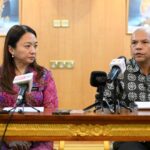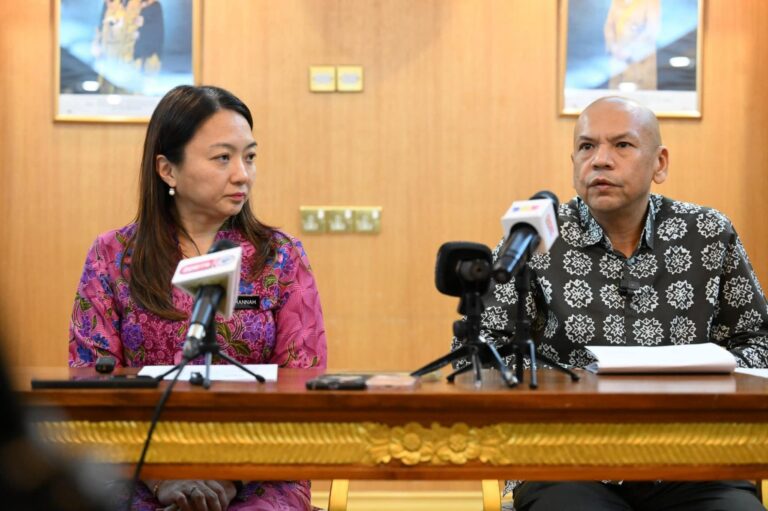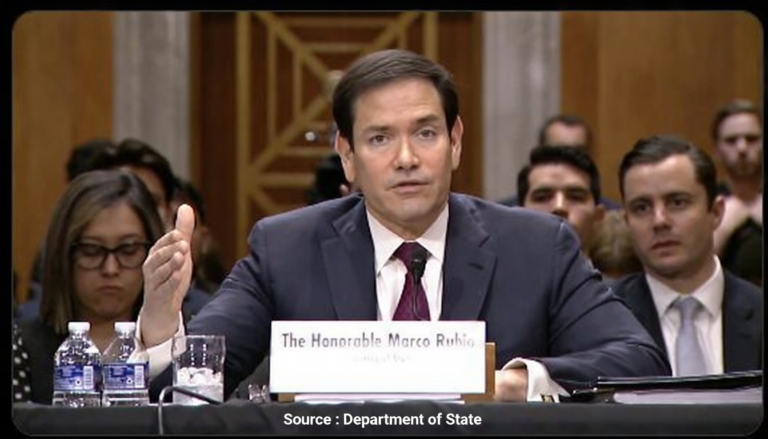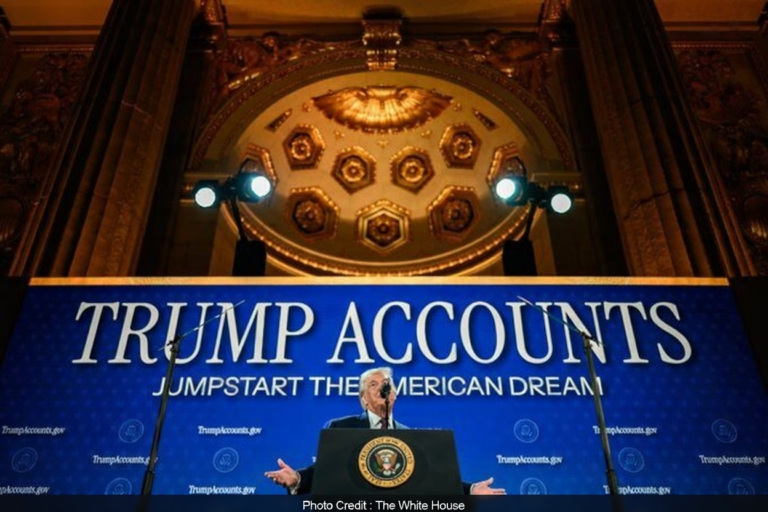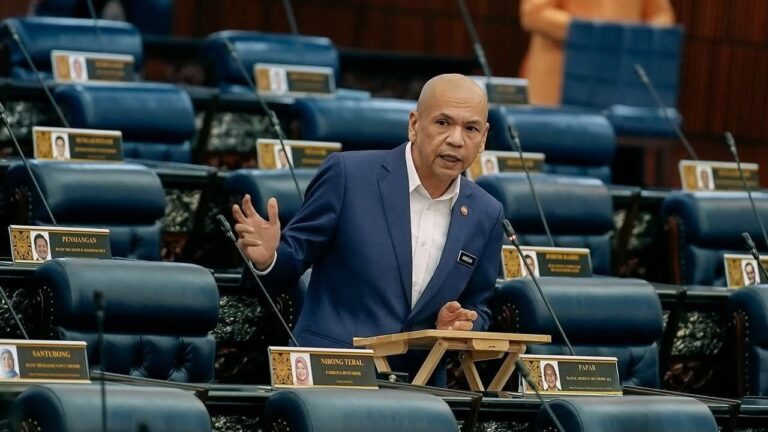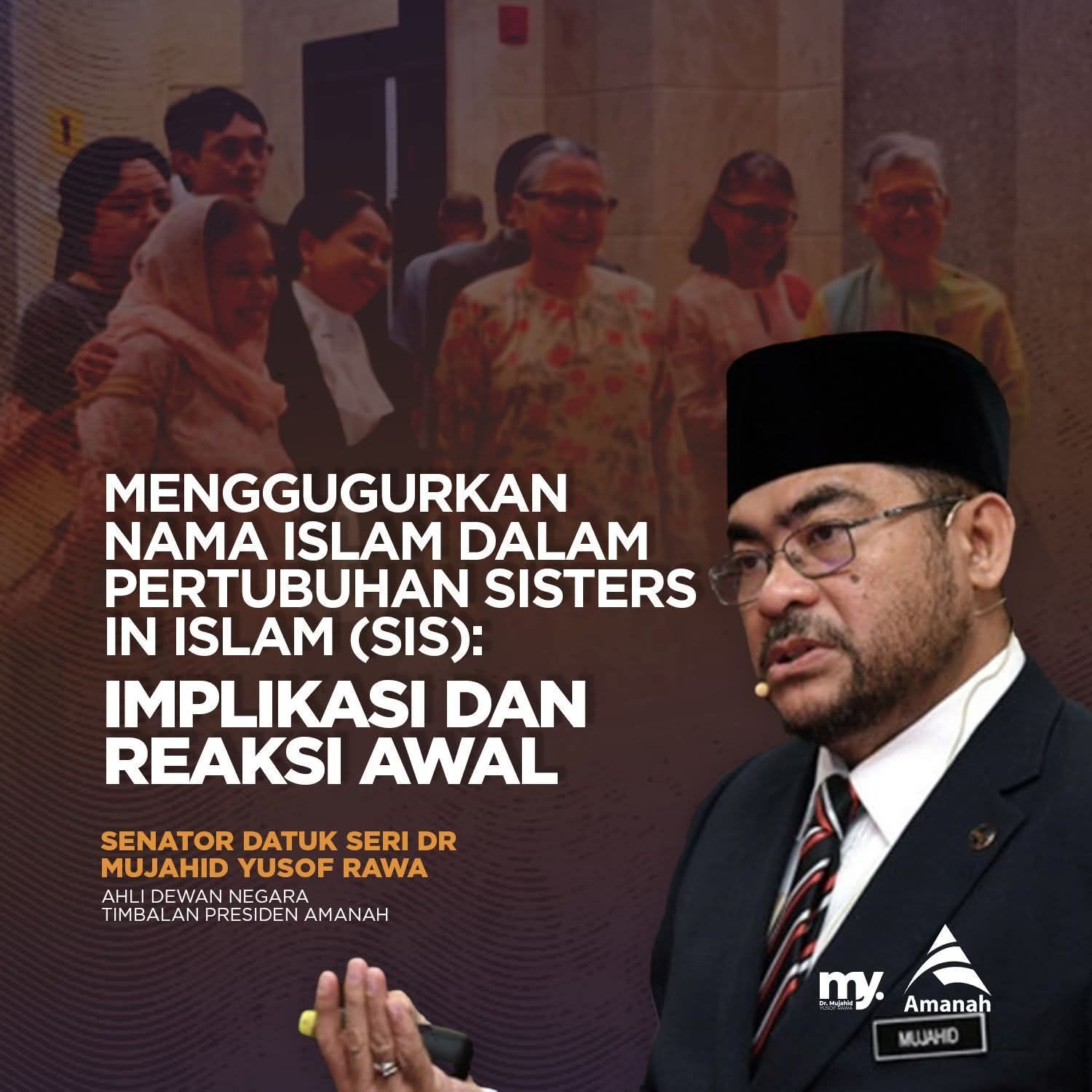
KUALA LUMPUR, Malaysia. Aug 1 2025– Senator Datuk Seri Dr Mujahid Yusof Rawa has called for a fair and proactive oversight of organizations using “Islam” in their branding, following the decision by Sisters in Islam (SIS) to drop the word from its official name.
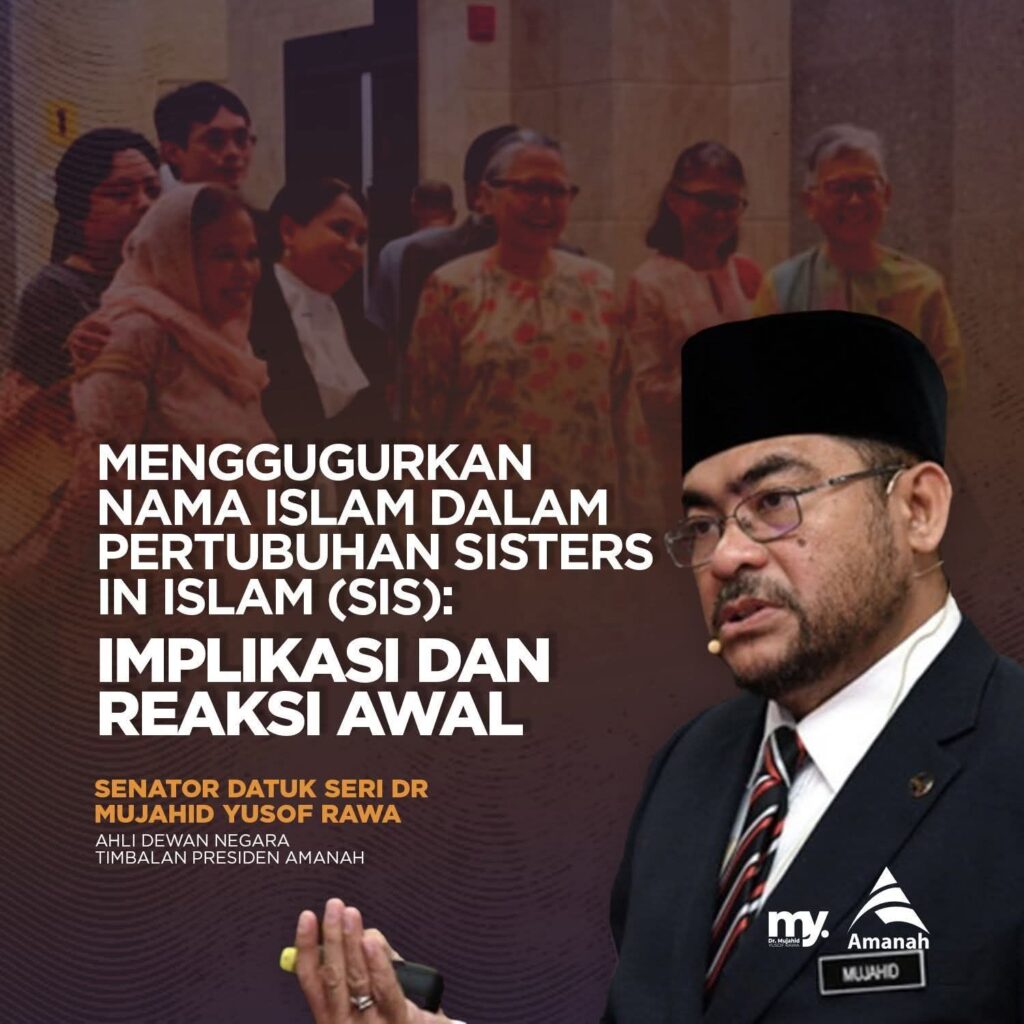
In a statement released on July 31, the deputy president of Parti Amanah Negara (AMANAH) and Dewan Negara member described the move as a “reasonable” step to protect Islam’s reputation from confusion and controversy, but warned that selective enforcement could erode public trust in Islamic institutions.
The rebranding comes after a 2014 fatwa by Selangor religious authorities was deemed unenforceable against SIS by the Federal Court, as the organization is a company rather than an individual Muslim. Mujahid emphasized that the court’s ruling was technical and did not challenge core Islamic beliefs, with the then Chief Justice clarifying it did not touch on matters of faith.
He noted that SIS’s decision was not court-mandated but a response to ongoing pressures, including concerns from royal circles about potential public confusion over the use of “Islam” in the group’s name, despite the favorable ruling.
Mujahid raised questions about the broader implications for other entities, such as political parties like Parti Islam Se-Malaysia (PAS) and NGOs including Pertubuhan Kebajikan Islam Malaysia (PERKIM) and Angkatan Belia Islam Malaysia (ABIM). “If similar confusion arises from organizations using the Islamic brand, would they also need to drop ‘Islam’ from their names?” he asked.
He highlighted cases where groups labeling themselves as Islamic have tarnished the faith’s image through slander and malicious accusations, some proven false in court. Mujahid argued that removing “Islam” to avoid ongoing polemics and division is justifiable, but stressed the need for equitable handling to prevent perceptions of bias.
“The scope of Islam is broad, encompassing muamalat (social transactions) and siasah (politics), which allow for wide ijtihad (interpretation) and differing views,” Mujahid said. He questioned whether permissible differences in opinion could be deemed confusing or damaging to Islam’s reputation.
Mujahid cautioned against using Islamic identity control as a tool to silence diverse views, which he said are encouraged in Islam as long as they are conducted with civility, wisdom, and mutual respect – embodying the principle of rahmah (mercy) in disagreement.
He clarified that he does not advocate for a blanket removal of “Islam” from organization names, urging case-by-case evaluation based on unique contexts and potential harm to the ummah (Muslim community) and nation. “This issue touches on the sensitivities of the ummah and must be handled delicately, like ‘pulling a hair from flour’ without breaking it,” he added.
Calling for proactive, transparent standards to define what constitutes confusion or defamation of Islam, Mujahid urged religious authorities to engage stakeholders in dialogue to prevent future court challenges between civil society and religious bodies.
He advocated for compromise spaces in addressing differences, as promoted by Islam, through inclusive sessions involving religious authorities, politicians, NGOs, and civil society.
Mujahid emphasized that Islam in Malaysia should remain exalted as a religion of broad discourse and profound impact, embodying justice, mercy, and wisdom. He called for swift action against groups using Islam’s name while promoting abuse, defamation, takfiri (excommunicating) ideologies, or extremism, which he said confuse and damage Islam’s image.
Reaffirming Islam’s status as the official religion under the Federal Constitution, which also guarantees freedom of religion for non-Muslims, Mujahid stressed that Islam should be judged by its substance and practice, not mere labels – echoing the Islamic legal maxim: “The benefit of something lies in its content, not its label.”
He proposed that SIS’s rebranding serve as a starting point for a bolder national discussion on managing Islamic identity fairly, openly, and maturely. “Open dialogue between religious institutions, political leaders, NGOs, and civil society is essential to clarify confusions arising from this episode and safeguard Islam’s good name,” he said.
Mujahid concluded by urging discussions grounded in confidence and commitment, guided by knowledge, wisdom, and etiquette as taught by Islamic sharia, rather than fear or prejudice.
SIS, a women’s rights advocacy group, has faced criticism from conservative quarters for its progressive interpretations of Islam, leading to the fatwa and subsequent legal battles. The organization’s name change to “Sisters in Advocacy” or similar has sparked mixed reactions, with some viewing it as necessary and others questioning its impact on Islamic-labeled entities.

